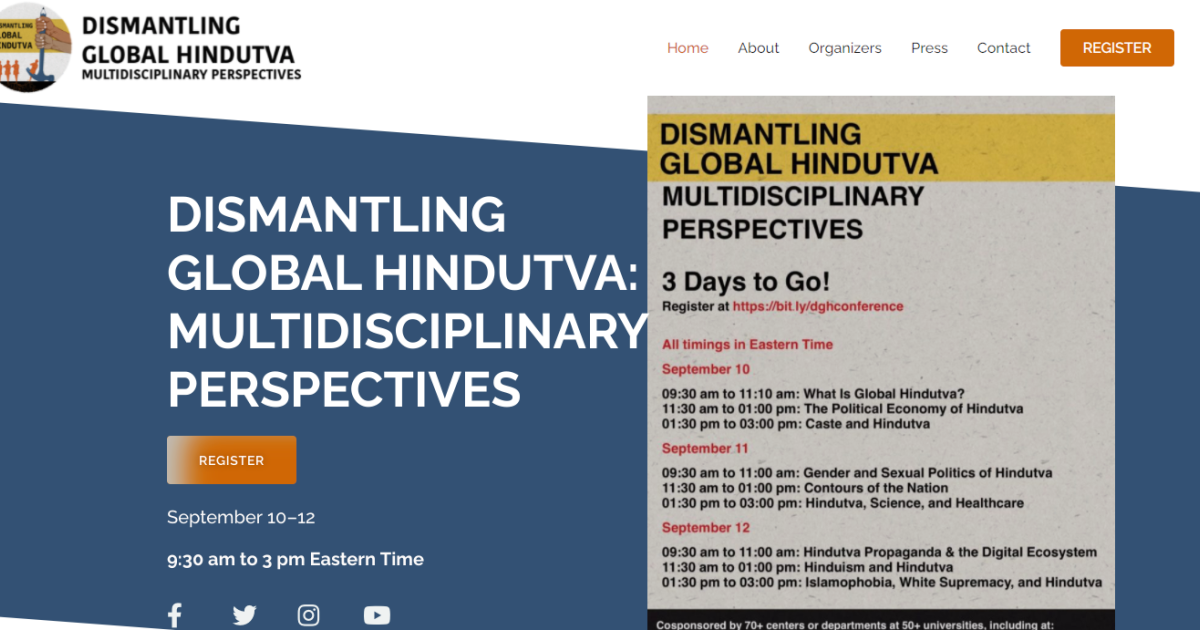Despite receiving severe backlash and threats by far-right Hindu nationalist groups a three-day global conference titled, “Dismantling Global Hindutva” started in the United States on Friday, 10th September.
The event is being organized, sponsored and participated by more than 40 global Universities and departments including Harvard Stanford and Princeton.
Day one of the conference kicked off with discussions around several topics such as, what is Global Hindutva keenly carving out the ideology behind Hindu nationalism, the political Economy of Hindutva, and Caste & Hindutva.
Many experts spoke including Christopher Jeffrolet, poet and Dalit activist Meena Kandasamy, Anand Patwardhan and Prof Dr Audrey Truschke.
“For more than five years, I have received hate mail from Hindu supremacists every single day. I have been the target of so many death and rape threats that I have lost count,” said Prof Dr Truschke during the conference briefing about the threats to academic freedom. "For more than 5 years, I have received hate mail from Hindu supremacists every single day. I have been target of so many death &rape threats that I have lost count," @AudreyTruschke said during US Congressional Briefing on threats to academic freedom.#DismantlingGlobalHindutva pic.twitter.com/tyy2hecbfr— Indian American Muslim Council (@IAMCouncil) September 10, 2021
Several attempts were made by Hindutva organisations in India and around the world to call off the event which includes writing letters to the top officials of the involved institutions, launching virtual campaigns against the event and its organizers and sending death threats to the speakers.
“Women participants have been subjected to the vilest kind of misogynistic threats and abuse and members of religious minorities associated with the conference have been targeted with casteist and sectarian slurs in the ugliest sorts of language,” Rohit Chopra, an associate professor at Santa Clara University, who is one of the conference organizers, told The Guardian.
Earlier, More than 50 South Asian universities, along with 937 academicians from across the world, including genocide and mass atrocity researchers, have extended their support to the conference, calling for an end to the rise in Hindu right-wing attacks on academic freedom.
This conference will continue for the next two days convening panels on a variety of interlinked topics that address the threat, power and rise of Hindutva. Scholars, journalists, and activists will examine the historical development of Hindutva, the fascist dimensions of the ideology, its alignment with other supremacist movements and define all that is at stake across a range of political, socio-cultural, and economic issues.
The conference is also intended to examine the history of dissent and resistance against rising Hindutva.
Related
Ghazala Ahmad is the Delhi Correspondent for The Cognate.












































